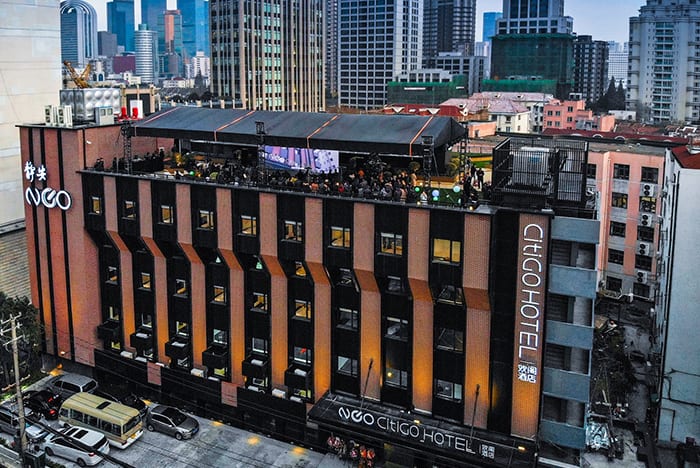
Hitone Capital’s Jing’an Neo in Shanghai
KKR has partnered up with a Shanghai-based fund manager to acquire a commercial development near the city’s historic Bund waterfront, according to people familiar with the matter.
The US private equity pioneer is making the investment through a joint venture that it hopes will deepen its real estate footprint in Asia Pacific, and particularly in China, sources indicated.
While financial details of the acquisition have not been announced, the deal through KKR’s newly formed platform with HiTone Capital, comes three months after KKR agreed to make a HK$180 million ($23 million) investment in Hong Kong which was the New York-based firm’s first deployment in the city from its KKR Asia Real Estate Partners fund, which is said to be aiming to raise $1.5 billion in capital.
Urban Renewal in the Historical Bund
The KKR-Hitone Capital joint venture closed on its acquisition of the ten-year-old grade B property at 399 Remin Road, two blocks inland from the historic Bund waterfront, last week, sources said.
The partners plan to convert the six-storey property into a 17,000 square metre (183,000 square foot) mixed-use development that will become part of HiTone’s “Neo” set of renovated commercial properties.
Sources said that when repositioned as “Neo Bund”, the project near Shanghai’s Gucheng Park will be pitched at a market similar to HiTone’s Jing’an Neo, a mixed-use property comprising a luxury boutique hotel, offices and retail that opened last December on West Wuding Road in the upmarket Jing An Temple commercial hub.
KKR Targets “Scaleable” JV Route with Local Operators
The Shanghai commitment by the private equity giant, which has $206 billion assets under management, is its first application in mainland China of a strategy aimed to replicate the platform-oriented approach it has taken in the US and Europe.

KKR’s APAC real estate chief John Pattar is looking to work alongside local operators
Sources close to the matter said that the KKR–HiTone Capital platform is part of an effort to build a more China-based private equity franchise, working alongside local operators such as Hitone Capital to help them grow their business.
“KKR is looking to do things that are scalable and going through the joint venture platform route makes this possible,” said a source close to the transaction.
Founded in 2015 by former Warburg Pincus executives Qian Wang and Kevin Zhao, who also did a stint at KKR, since May 2017 HiTone Capital has acquired eight real estate assets in core areas of Beijing and Shanghai, and has already exited from four of those investments.
Targeting distressed properties for conversion into upmarket mixed-use schemes, the company is said to have at least three more NEO projects in the pipeline, including one more in Shanghai, and two in Beijing.
Backed by cornerstone investors including TPG, China Lodging Group, Sunshine Insurance, Everbright Ashmore, and Jinmao Capital, Hitone Capital manages RMB 5 billion in funds, according to sources.
Sources Confirm Previous Reports
Previous reports that KKR’s maiden Asia real estate fund, which is targeting $1.5 billion in capital, had already raised significant cash from limited partners including sovereign wealth funds and pension managers have been confirmed by a source close to the fund raise, who also verified that the US company had committed $250 million of its own equity to the vehicle.
The New York firm’s three-month-old partnership with Wang On is said by the same source to be another example of KKR’s platform-based strategy, and to be similar in structure to the New York firm’s JV with Hitone Capital.
That Hong Kong transaction saw KKR take a fifty percent stake in a joint venture with Wang On Group and Wang On Properties that invested HK$180 million ($23 million) in acquiring a two-storey retail podium at the Lake Silver residential complex in the Ma On Shan area of the New Territories from a Wang On unit.
As part of the agreement, the joint venture then agreed to lease the 28,200 square foot suburban shopping centre to a unit of Wang On Group for a further ten years.
The Hong Kong investment is said to have been the private equity firm’s first disbursement from its KKR Asia Real Estate Partners fund.
Leave a Reply